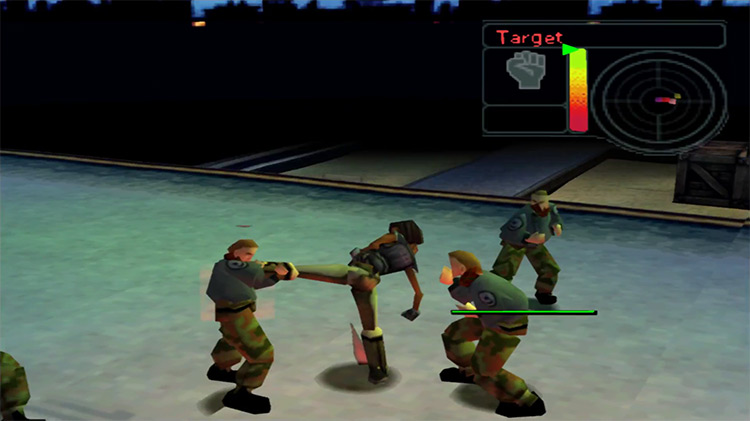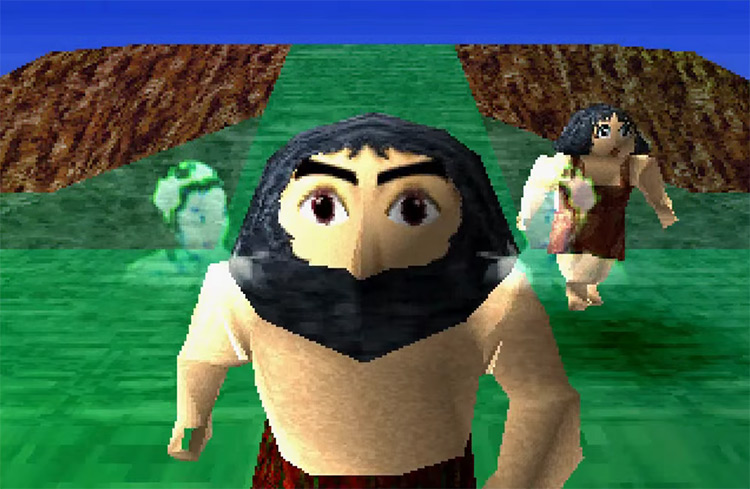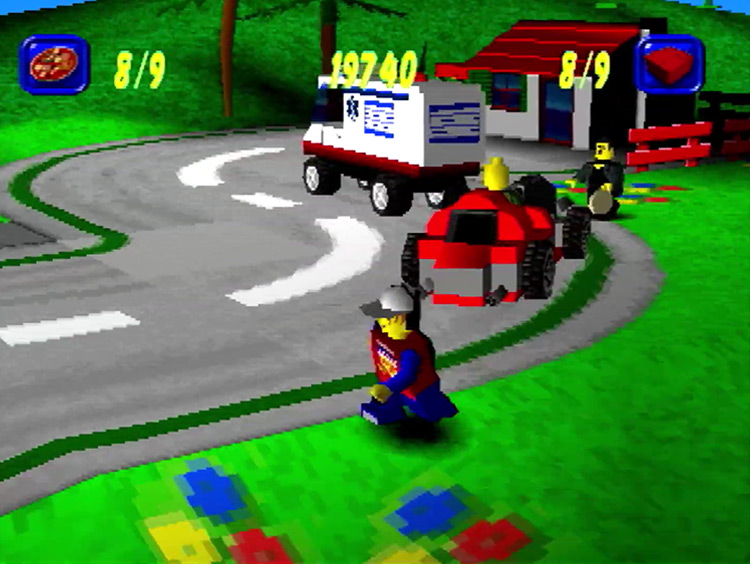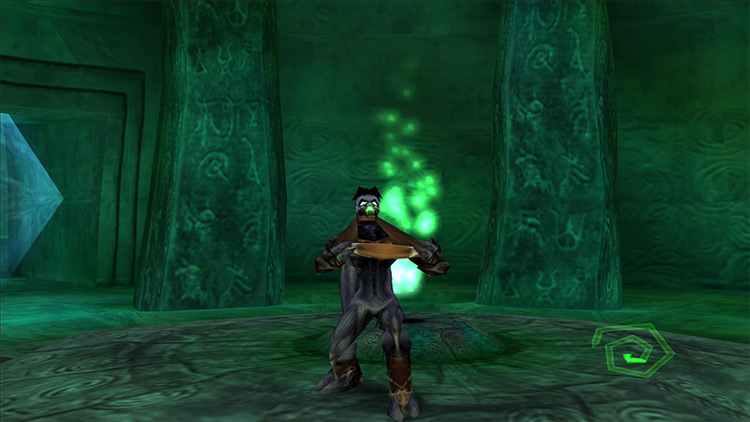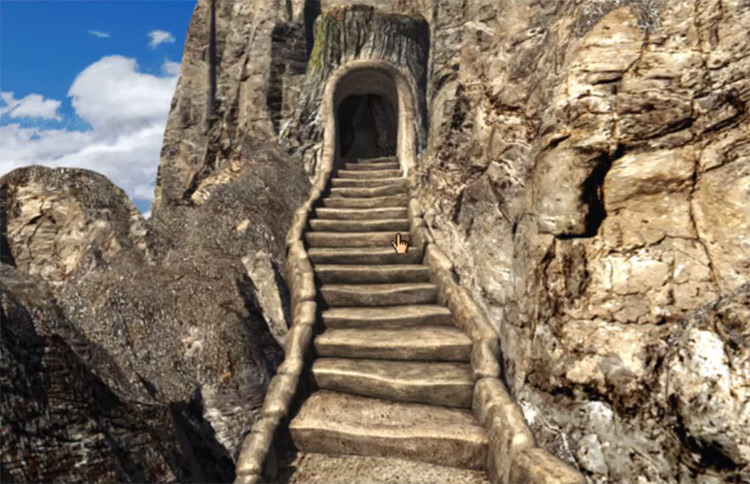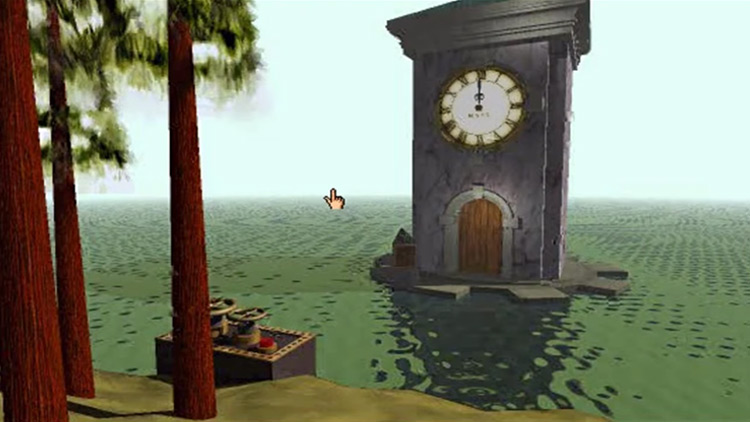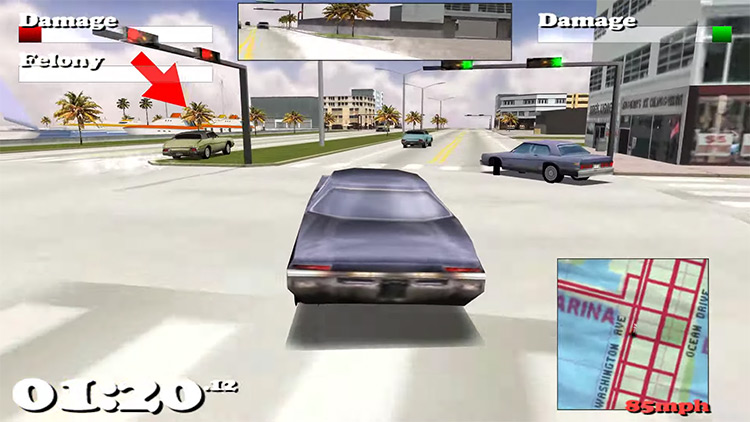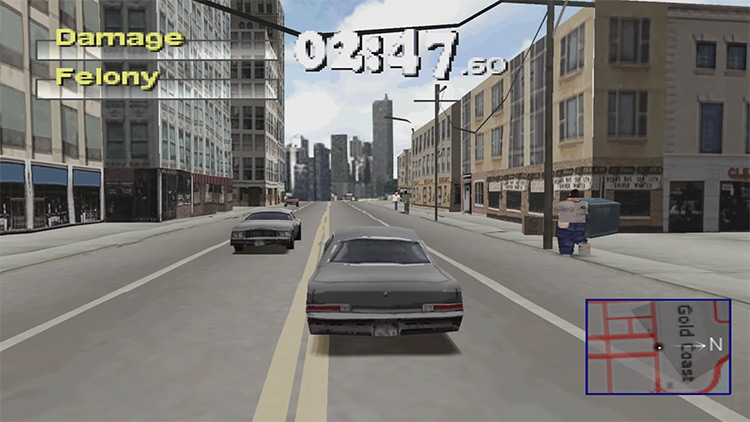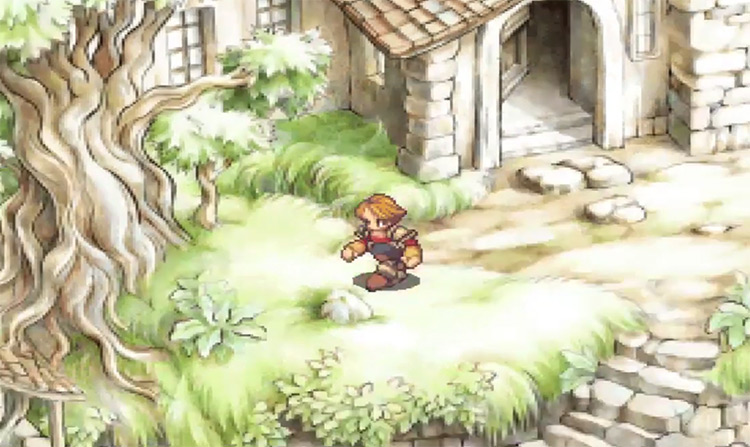We live in the age of immersion, with developers crafting realistic environments to lose ourselves and forget the woes of our daily lives. But you don’t need a monster gaming rig or a ninth-gen console to explore beautiful virtual landscapes. Even as far back as the original PlayStation, developers tested the waters and built worlds as large and fun to explore as the technology would allow. Join me on a journey through the awe-inspiring realms of early PlayStation open-world gaming.
10. Urban Chaos (2000)
Urban Chaos is a little-known but very ambitious action-adventure title where you play as a newly enlisted police officer in Union City. The game takes place across 24 main levels and four bonus levels in different city areas, where you’ll have to uphold the law and shoot it out with criminal gangs. Managing public perception of your policing is also essential. Police brutality is looked down upon, while arresting your enemies earns you civilian respect.
9. Tail of the Sun (1997)
One of the most creative titles on the PlayStation is Artdink’s Tail of the Sun, which puts you in control of a caveman scouring a large island for resources. At first, you only have to worry about staying alive by gathering food, hunting animals, and occasionally sleeping. The more food you find, the better your tribe will fare – and maybe you’ll build something interesting. Something Tail of the Sun has in common with modern open-world sandboxes is the apparent lack of goals or guidance. There’s an objective for sure, but you need to figure it out by playing around and surviving until it becomes clear.
8. LEGO Island 2: The Brickster’s Revenge (2001)
Before we had Emmet Brickowski on the silver screen, Pepper Roni was already delivering pizza all over LEGO Island. This family-friendly title lets you skate around large LEGO environments. At first, you’ll deliver pizzas in exchange for bricks to build yourself a new home – but stakes get higher once the Brickster escapes from prison and starts destroying structures all around the island. As Pepper, you’ll play the role of an unlikely hero, completing mini-game challenges and puzzles to rebuild the world and recover the Constructopedia from the Brickster’s blocky hands.
7. Legacy of Kain: Soul Reaver (1999)
This sequel to Blood Omen: Legacy of Kain is a great-looking 3D Metroidvania that’s perfect for the hardcore explorers among you. Much like 2D Metroid and Castlevania titles, Legacy of Kain willingly foregoes providing a map despite its extensive environments. While inconvenient, it does force you to immerse yourself a bit further into the game – in hopes of remembering the world’s layout. Other than that, this title shines for its gorgeous graphics and flashy, if simple, combat. The dark gothic atmosphere is also masterfully achieved.
6. Myst (1996)
Myst is a different kind of game for the PlayStation. Whereas other game developers were preoccupied with creating colorful mascots and exciting gameplay, Cyan made the haunting but beautiful Island of Myst. You’ll spend most of the game exploring the island and clearing contextual puzzles. You’ll also find portals that’ll transport you to different “Ages” including the Selenitic, Stoneship, Mechanical, and Channelwood, which feature different architecture and puzzles. This game doesn’t feel like it was released back in 1995 – so it really does hold up for a few reasons. But ultimately, its oddly non-violent concept and non-traditional storytelling give it an indie charm similar to modern “walking simulators” like The Witness (2016) or The Talos Principle (2014).
5. Riven: The Sequel to Myst (1997)
Yes, the game really is called “The Sequel to Myst.” Odd naming conventions aside, Riven continues the legacy of Myst with a vast, gorgeous world to explore freely, solving puzzles and challenges along the way. The game picks up the story right where Myst left off and has you exploring the realm of Riven to rescue your wife from your corrupt father, who’s also responsible for Riven’s decline. I understand that calling a point-and-click graphic adventure an “open-world” might be a bit much, but in terms of exploration and immersion, Riven has nothing to envy something like Fallout or contemporary The Elder Scrolls games.
4. Batman & Robin (1998)
Batman fans who own a PlayStation can have the privilege of playing one of the most ambitious Batman games made in the 90s – Batman & Robin. I used to think the Arkham series was the first to put Batman in an open-world setting. But as it turns out, developer Probe Entertainment had already done so in this hidden gem. You’ll drive around Gotham as Batman, Robin, or Batgirl – each of which has their own crime-fighting vehicle. The characters look great, the cars are incredible, and the city doesn’t look half bad. Something that makes Batman & Robin exceptionally immersive is how everything in the city happens in a particular schedule regardless of your involvement. Better get on with that investigation, or you might miss a couple crimes!
3. Driver (1999)
If you’re looking for a classic title that can give you the liberating feeling of driving around a city with no regard for safety or driving regulations, Driver is that game. This incredibly ambitious title lets players drive freely around four real-world cities – Miami, Los Angeles, San Francisco, and New York – on many now-vintage vehicles. They’re not perfectly faithful to how the actual cities look on a map, but I wasn’t expecting hyper-realism from a PlayStation game. Missions include tailing other vehicles, spooking the drivers, and performing takedowns on dangerous criminals.
2. Driver 2 (2000)
If you liked the original Driver, you’ll love the sequel, which adds the ability to get out of the car to investigate on foot and change vehicles on the go. This time, you’ll drive around Chicago, Las Vegas, Havana, and Rio de Janeiro – all considerably larger than the original game’s environments. Gameplay remains mostly the same, albeit with a wider variety of missions. The one thing Driver 2 did worse than its predecessor was innovation. It’s a great game if you liked the first, but it doesn’t offer too much of anything new.
1. SaGa Frontier 2 (2000)
Many JRPGs have large overworlds to explore. But SaGa Frontier 2 is the closest that a PS1 JRPG ever got to an authentic open world. What sets this Square game apart is the non-linearity of your progress through the game. You’re free to choose your path to completion, traveling the medieval fantasy world of Sandail and experiencing the storyline at your pace. The game also shines for its gorgeous watercolor art style. Every inch of the map holds within it a magnificent landscape, including forests, rocky mountains, and lakeside environments you’d want to hang on your wall. If you’re on the fence, maybe take a look at this detailed review to see what SaGa Frontier 2 has to offer.
